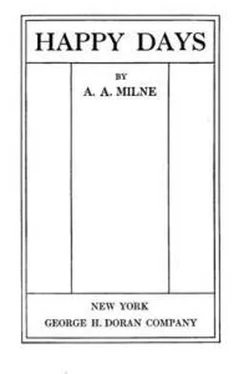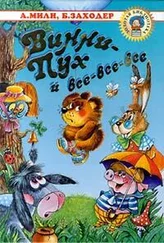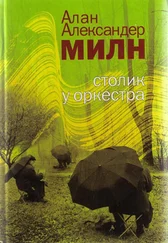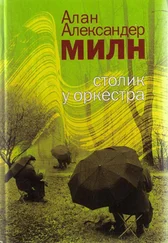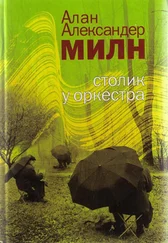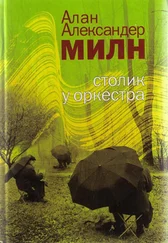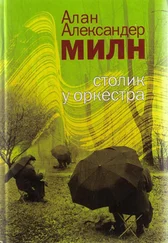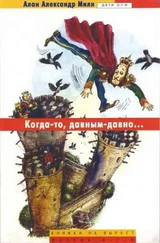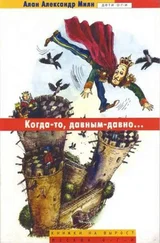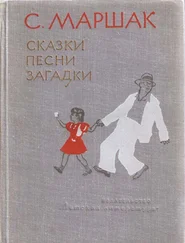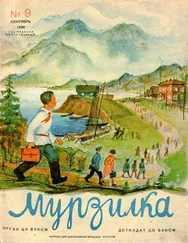Алан Милн - Happy Days
Здесь есть возможность читать онлайн «Алан Милн - Happy Days» весь текст электронной книги совершенно бесплатно (целиком полную версию без сокращений). В некоторых случаях можно слушать аудио, скачать через торрент в формате fb2 и присутствует краткое содержание. Год выпуска: 2014, Издательство: epubBooks Classics, Жанр: Юмористическая проза, на английском языке. Описание произведения, (предисловие) а так же отзывы посетителей доступны на портале библиотеки ЛибКат.
- Название:Happy Days
- Автор:
- Издательство:epubBooks Classics
- Жанр:
- Год:2014
- ISBN:нет данных
- Рейтинг книги:5 / 5. Голосов: 1
-
Избранное:Добавить в избранное
- Отзывы:
-
Ваша оценка:
- 100
- 1
- 2
- 3
- 4
- 5
Happy Days: краткое содержание, описание и аннотация
Предлагаем к чтению аннотацию, описание, краткое содержание или предисловие (зависит от того, что написал сам автор книги «Happy Days»). Если вы не нашли необходимую информацию о книге — напишите в комментариях, мы постараемся отыскать её.
Happy Days — читать онлайн бесплатно полную книгу (весь текст) целиком
Ниже представлен текст книги, разбитый по страницам. Система сохранения места последней прочитанной страницы, позволяет с удобством читать онлайн бесплатно книгу «Happy Days», без необходимости каждый раз заново искать на чём Вы остановились. Поставьте закладку, и сможете в любой момент перейти на страницу, на которой закончили чтение.
Интервал:
Закладка:
I said "Yes," and that I was her loving uncle. It seemed to be then too late for a "P.T.O.," but I got one in and put on the back, "Love to Baby." The answer came by return of post:
"MY DEAR UNCLE thank you for your letter come erly on p t o Thursday come at half past nothing baby sends her love and so do p t o I my roking horse has a sirrup broken isnt that a pity say yes or no good–bye from your loving MARGIE."
Of course I thanked Baby for her love and gave my decision that it was a pity about the rocking–horse. I did it in large capitals, which (as I ought to have said before) is the means of communication between Margery and her friends. For some reason or other I find printing capitals to be more tiring than the ordinary method of writing.
"MY DEAR UNCLE," wrote Margery—
But we need not go into that. What I want to say is this: I love to get letters, particularly these, but I hate writing them, particularly in capitals. Years ago I used to answer Margery's letter for her. It is now her turn to answer mine for me.
IX
The Truth About Home Rails
Imagine us, if you can, sitting one on each side of the fire, I with my feet on the mantelpiece, Margery curled up in the blue arm–chair, both of us intent on the morning paper. To me, by good chance, has fallen the sporting page; to Margery, the foreign, political and financial intelligence of the day.
"What," said Margery, "does it mean when it says―" she stopped and spelt it over to herself again.
I put down my piece of the paper and prepared to explain. The desire for knowledge in the young cannot be too strongly encouraged, and I have always flattered myself that I can explain in perfectly simple language anything which a child wants to know. For instance, I once told Margery what "Miniature Rifle Shooting" meant; it was a head–line which she had come across in her paper. The explanation took some time, owing to Margery's pre–conceived idea that a bird entered into it somewhere; several times, when I thought the lesson was over, she said, "Well, what about the bird?" But I think I made it plain to her in the end, though maybe she has forgotten about it now.
"What," said Margery, "does it mean when it says 'Home Rails Firm'?"
I took up my paper again. The Cambridge fifteen I was glad to see, were rapidly developing into a first–class team, and―
"'Home Rails Firm,'" repeated Margery, and looked up at me.
My mind worked rapidly, as it always does in a crisis.
"What did you say?" I asked in surprise.
"What does 'Home Rails Firm' mean?"
"Where does it say that?" I went on, still thinking at lightning speed.
"There. It said it yesterday too."
"Ah, yes." I made up my mind. "Well, that," I said—"I think that is something you must ask your father."
"I did ask him yesterday."
"Well, then―"
"He told me to ask Mummy."
Coward!
"You can be sure," I said firmly, "that what Mummy told you would be right," and I returned to my paper.
"Mummy told me to wait till you came."
Really, these parents! The way they shirk their responsibilities nowadays is disgusting.
"'Home Rails Firm.'" said Margery, and settled herself to listen.
It is good that children should be encouraged to take an interest in the affairs of the day, but I do think that a little girl might be taught by its father (or if more convenient, mother) which part of a newspaper to read. Had Margery asked me the difference between a bunker and a banker, had she demanded an explanation of "ultimatum" or "guillotine," I could have done something with it; but to let a child of six fill her head with ideas as to the firmness or otherwise of Home Rails is hardly nice. However, an explanation had to be given.
"Well, it's like this, Margery," I said at last. "Supposing—well—you see, supposing,—that is to say, if I―" and then I stopped. I had a sort of feeling—intuition, they call it—that I was beginning in the wrong way.
"Go on," said Margery.
"Perhaps, I had better put it this way. Supposing you were to—Well, we'd better begin further back than that. You know what—No, I don't suppose you do know that. Well, if I—that is to say, when a man—you know, it's rather difficult to explain this, Margery."
"Are you explaining it now?"
"I'm just going to begin."
"Thank you, uncle."
I lit my pipe slowly, while I considered again how best to approach the matter.
"'Home Rails Firm,'" said Margery. "Isn't it a funny thing to say?"
It was. It was a very silly thing to say. Whoever said it first might have known what it would lead to.
"Perhaps I can explain it best like this, Margery," I said, beginning on a new tack. "I suppose you know what 'firm' means?"
"What does it mean?"
"Ah, well, if you don't know that," I said, rather pleased, "perhaps I had better explain that first. 'Firm' means that—that is to say, you call a thing firm if it—well, if it doesn't—that is to say, a thing is firm if it can't move."
"Like a house."
"Well, something like that. This chair for instance," and I put my hand on her chair, "is firm because you can't shake it. You see, it's quite—Hallo, what's that?"
"Oh, you bad uncle, you've knocked the castor off again," cried Margery, greatly excited at the incident.
"This is too much," I said bitterly. "Even the furniture is against me."
"Go on explaining," said Margery, rocking herself in the now wobbly chair.
I decided to leave "firm." It is not an easy word to explain at the best of times, and when everything you touch goes and breaks itself it becomes perfectly impossible.
"Well, so much for that," I said. "And now we come to 'rails.' You know what rails are?"
"Like I've got in the nursery?"
This was splendid. I had forgotten these for the moment.
"Exactly. The rails your train goes on. Well, then, 'Home Rails' would be rails at home."
"Well, I've got them at home," said Margery in surprise. "I couldn't have them anywhere else."
"Quite so. Then 'Home Rails Firm' would mean that—er—home rails were—er—firm."
"But mine aren't, because they wobble. You know they do."
"Yes, but―"
"Well, why do they say 'Home Rails Firm' when they mean 'Home Rails Wobble'?"
"Ah, that's just it. The point is that when they say 'Home Rails Firm,' they don't mean that the rails themselves are firm. In fact they don't mean at all what you think they mean. They mean something quite different."
"What do they mean?"
"I am just going to explain," I said stiffly.
"Or perhaps I had better put it this way," I said ten minutes later. "Supposing—Oh, Margery, it is difficult to explain."
"I must know," said Margery.
"Why do you want to know so badly?"
"I want to know a million million times more than anything else in the whole world."
"Why?"
"So as I can tell Angela," said Margery.
I plunged into my explanation again. Angela is three, and I can quite see how important it is that she should be sound on the question.
Part II
Life's Little Tragedies
X
A Crown of Sorrows
There is something on my mind, of which I must relieve myself. If I am ever to face the world again with a smile I must share my trouble with others. I cannot bear my burden alone.
Friends, I have lost my hat. Will the gentleman who took it by mistake, and forgot to leave his own in its place, kindly return my hat to me at once?
I am very miserable without my hat. It was one of those nice soft ones with a dent down the middle to collect the rain; one of those soft hats which wrap themselves so lovingly round the cranium that they ultimately absorb the personality of the wearer underneath, responding to his every emotion. When people said nice things about me my hat would swell in sympathy; when they said nasty things, or when I had had my hair cut, it would adapt itself automatically to my lesser requirements. In a word, it fitted—and that is more than can be said for your hard, unyielding bowler.
Читать дальшеИнтервал:
Закладка:
Похожие книги на «Happy Days»
Представляем Вашему вниманию похожие книги на «Happy Days» списком для выбора. Мы отобрали схожую по названию и смыслу литературу в надежде предоставить читателям больше вариантов отыскать новые, интересные, ещё непрочитанные произведения.
Обсуждение, отзывы о книге «Happy Days» и просто собственные мнения читателей. Оставьте ваши комментарии, напишите, что Вы думаете о произведении, его смысле или главных героях. Укажите что конкретно понравилось, а что нет, и почему Вы так считаете.
